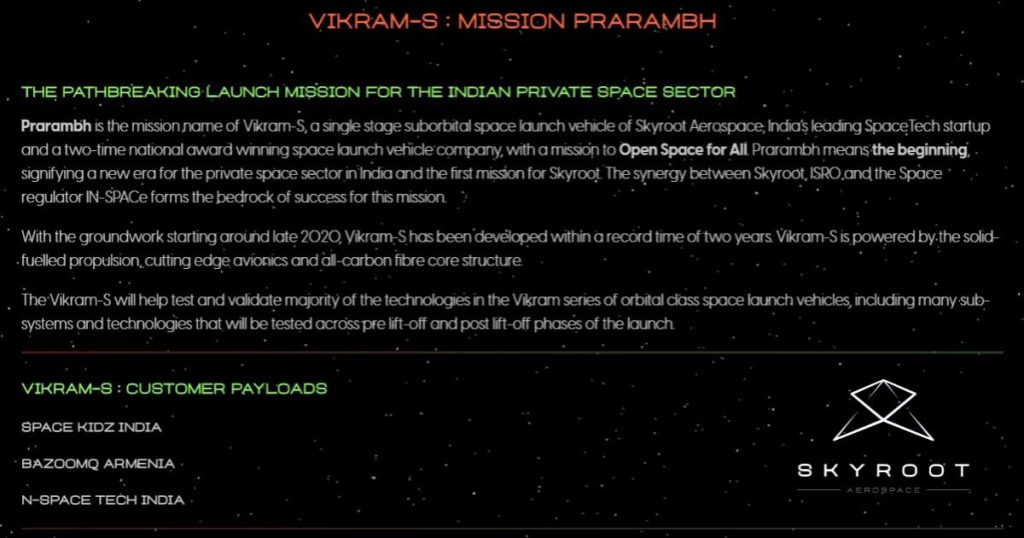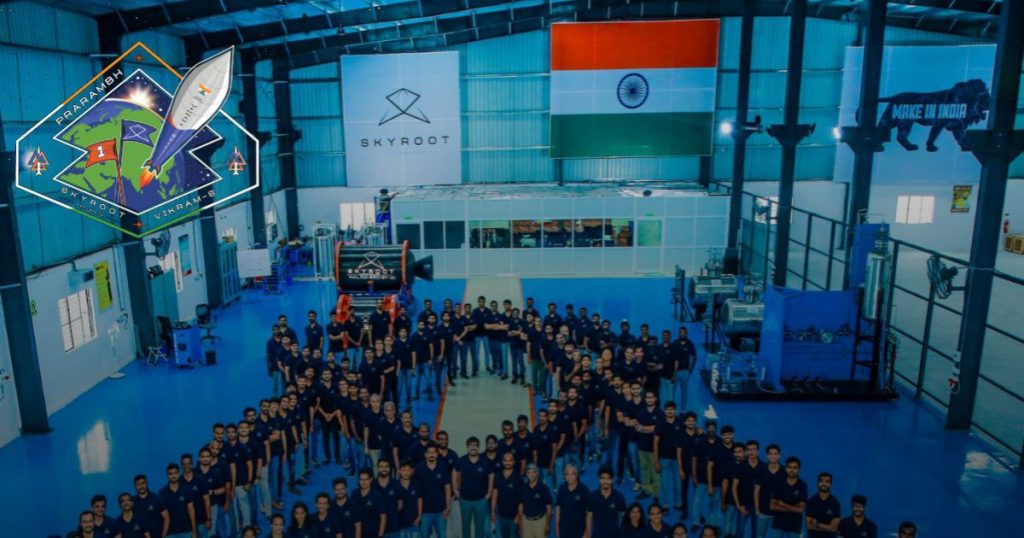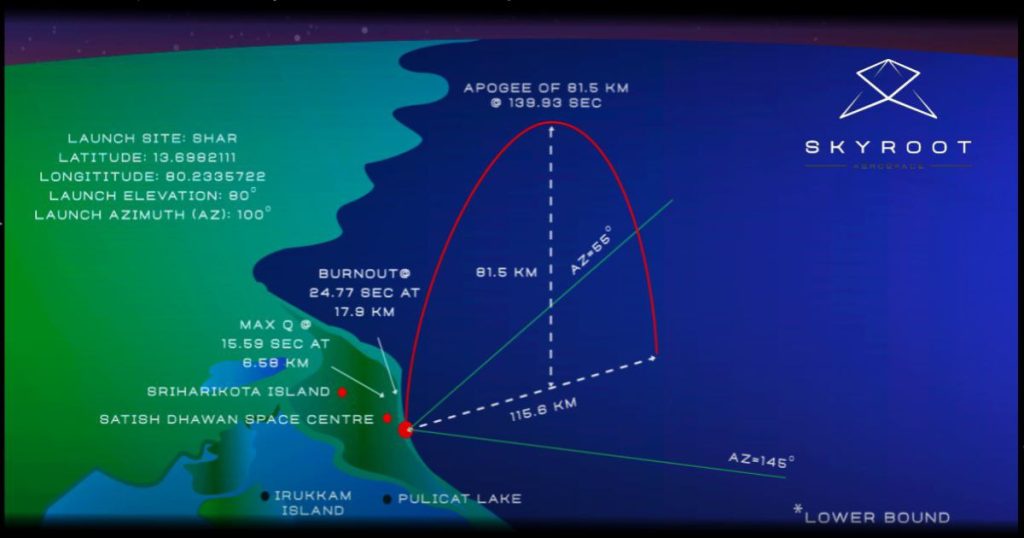ISRO launches dozens of satellites into orbit each year and had made great strides in the space sector, but a test rocket carrying three dummy payloads made history last week. It was India’s first private space mission. The Satish Dhawan Space Centre in Sriharikota, Andhra Pradesh, launched the first demonstrator mission of the startup space company Skyroot Aerospace.
Dhruva Space offered India another reason to be proud in the succeeding week, thanks to its tenacity, passion, and zeal to touch the sky. The Hyderabad-based space tech private firm Dhruva Space is receiving praise for the successful launch of its two nanosatellites, Thybolt 1 and Thybolt 2, onboard ISRO’s PSLV-C54 mission from Sriharikota on Saturday (26th November). Thybolt-1 and Thybolt-2 are suitable for communication at low data rates.
Dhruva Space: In Brief
Sanjay Nekkanti established Dhruva Space in 2012. Contrary to many other satellite-based businesses around the world, Dhruva Space produces satellites along with the infrastructure that supports them, including solar panels, satellite software, communication systems, and satellite deployers.
“Our satellites are several times more affordable than those made in industrialized western nations. This would enable India to increase its share of the global space market”, according to Sanjay Nekkanti (Founder).
Skyroot Aerospace: Mission Prarambh

Last week on 18th November just after 11:36 am, the Vikram-S rocket reached an altitude of 89.5 kilometers from Earth before crashing into the Bay of Bengal. This testifies to the successful launch of Mission Prarambh (beginnings).
Indian Space Research Organization (ISRO) tweeted and Congratulated India and Skyroot Aerospace and declared that the mission was a technology demonstrator, which is ordinarily the first space mission carried out before a real flight.
Skyroot Aerospace, a National award-winning start-up, is developing India’s first privately constructed space launch vehicles. A series of modular space launch vehicles called Vikram-S, named after Dr. Vikram Sarabhai, the man who started the Indian Space Program, was created specifically for the small satellite market.
Kalam-80: Propelled The Vikram S
A solid propellant motor called a Kalam-80 propelled the Vikram-S launcher. At the mission’s announcement last week, Skyroot Aerospace’s chief executive, Pawan Chandana, told that the Kalam-80 engine is a scaled-down version of the Kalam-100 motors that will likely be used in the company’s Vikram-I rocket, which will likely be its first commercial satellite deployer.
Skyroot believes it can manufacture a new rocket in two days using 3D printing, as it moves toward reusable rockets, a technology pioneered by SpaceX.

Team Skyroot Aerospace
Skyroot Aerospace, which was established in 2018 by Pawan Kumar Chandana (Co-founder, CEO & CTO) and Naga Bharath Daka (COO), two former scientists of the Indian Space Research Organization (ISRO), has set the goal of developing rockets for one-fifth the price of those used in the market at the moment.
Skyroot Aerospace is a National award-winning startup with a world-class team of 70+ rocket engineers and a combined experience of 500+ years in the rocket industry.
According to the Skyroot Aerospace team, launching satellites into orbit will soon be as simple as booking a taxi: quick, accurate, and reasonably priced.
Government Role And ISRO’s Support
India’s proposed space communications policy, which allowed for the entry of private companies into the domestic space industry, made it possible for the Skyroot mission. Skyroot was permitted to carry out the launch mission by the Indian National Space Promotion and Authorization Centre (In-Space), a central authorization agency within the government’s Department of Space (DoS). By a transfer of technology provision that is anticipated to be a part of India’s eventual space policy, ISRO provided its facilities.
Skyroot claims that the Modi government’s goal to boost India’s share of the global space launch industry has given investors confidence in Skyroot and other companies’ efforts.
India accounts for less than 2% of the $360 billion global space market, which is projected to grow to more than $1 trillion by 2040.
Competitions And Rivals

Skyroot competes with both established and emerging rocket launch rivals, all of which promise to reduce costs.
Galactic Energy, a Chinese firm, launched five satellites into orbit last week in its fourth successful launch.
By the middle of the decade, Space One in Japan hopes to launch 20 small rockets annually with support from Canon Electronics and IHI Corp.
However, Skyroot, which successfully launched a test rocket last week, anticipates that its prices would be 50% lower than those of well-known rivals like Richard Branson’s Virgin Orbit and California-based Rocket Lab USA Inc.
Future orbital missions would put Indian businesses like Skyroot up against similar international initiatives like Rocket Lab and other private businesses in the EU. This would make the cost consideration crucial. Reusability may also be required, like with the Vikram-III launcher, which would follow.
India possesses only 80 space assets, compared to the United States 1,650 and China’s 450. “Commercially viable satellite launches can assist India in developing a satellite network similar to Starlink.”
What Experts Have To Say

Industry insiders claimed that Skyroot’s mission’s success will validate India’s nascent private space industry.
The flight would “confirm most of the technology in the Vikram series of space launch vehicles planned by Skyroot in the future years,” according to Anil Kumar Bhatt, director general of industry group Indian Space Association.”
A successful launch of an Indian-designed and -built low-Earth orbit launch system will catalyze private investments in rocket technology raking in billions and speed up the delivery of constellations for united India, including agricultural technologies, energy revolution, and smart urban infrastructure proclaimed Mahesh Kolli, co-founder and joint managing director of the green energy company Greenko, which has a stake in Skyroot.
A representative for In-Space indicated that a demonstration launch for Agnikul Cosmos‘ homegrown satellite launcher, Agnibaan, is anticipated shortly at the launch event for Vikram-S.
Industry estimates predict that missions like this will aid India in gaining a larger share of the world’s commercial space economy, which is currently less than 2%.
Pawan Chandana claimed that the company’s 3D-printed solid fuel motor and carbon fiber body including the thrusters were validated by the launch on Friday. The CEO declared in June that Bengaluru and Chennai additive manufacturing facilities are where the company 3D prints its engines. Once demand develops, Skyroot also plans to build its 3D printing engine manufacturing facility, similar to the one Agnikul Cosmos unveiled in July of this year.









